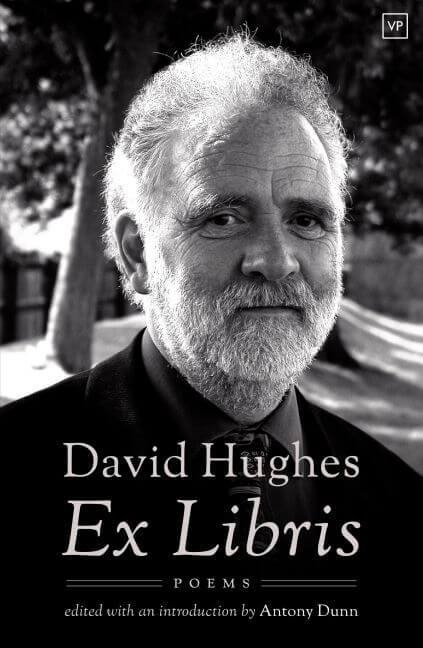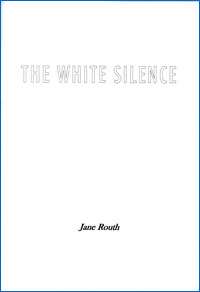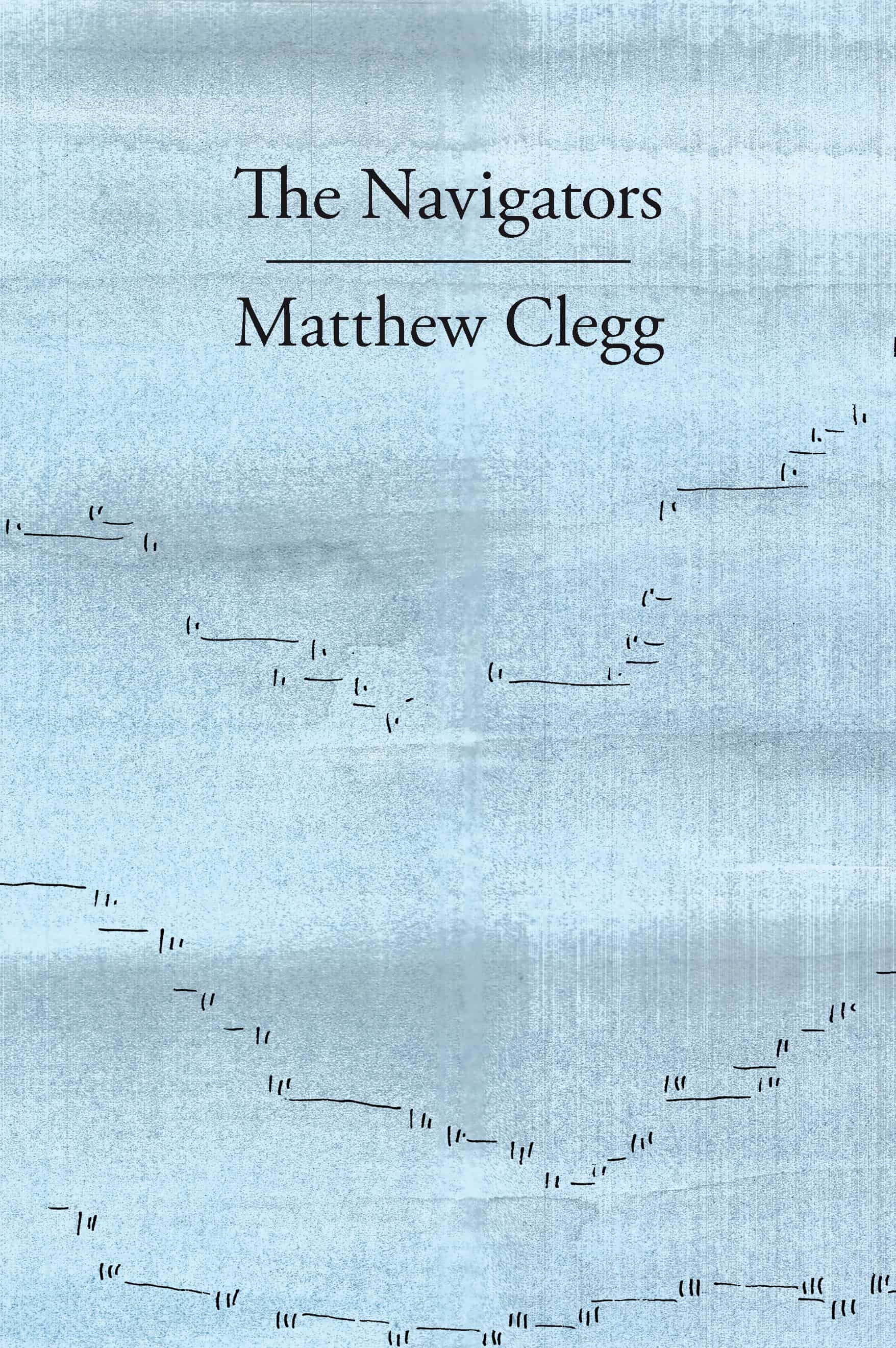Three poets whose poetry contains a sense of place and being where edges, historic, water- flowed or rock faced allow us readers to engage with themes worthy of the time and effort required.
Those of us who are moved by rock’s edges will empathise with David Hughes in his posthumous collection, EX LIBRIS. Losing a friend on a rock-face, as any grief, startles and sears. Encouraging others in writing and poetry, as teacher, friend and support is a life well lived. This is the poetry that comes from this life.
Hughes’s poems are gifts to others, often dedicated to them – none more so than his climbing companion and friend, Barry Daniel, who was killed while leading an expedition of students on the Austerdalsein. His befriending of Young Dave, and the prison letters and poems composed as a response to the process of forgiveness and response to Young Dave’s attack on him are another element, and this not without the down-to-earth humour that eschews sentimentality –
Perfection, where all things are fixed and true?
It doesn’t sound the kind of heaven to strike
you dumb with wonder; you’d have nowt to do
You’d much prefer a heaven where gods might hike
on sponsored walks that you could organize –
to build a climbing wall, or something like.
Valediction
The skill of a shorter breath-based, structured stress lines vary. Sustained line lengths also form a part, as in East of Ypres, Sanctuary Road
November night in Sanctuary Wood: the broken Old
Contemptibles
have re-assembled in the low ridge lee, where field-gun
shrapnel
tears the year’s last foliage from trees that splinter, till it
seems there’ll never be
a spring sprung green again. Soldiers, sleeping shallow
under leaf-mould
and while ‘Soldiers, sleeping shallow’ may have too many sibilants the musicality of consonantal cluster and internal rhyme pressed against the length of the line catches the breath enacting a struggle fitting for it subject, Ypres. This horror at the outrage of war is all too timely now –
Seven of the players down by Armistice Day –
And even the slender boy in the Umpire’s coat,
Yes, even the Umpire lost his cheerful name
By the end of the War by being Jolly dead.
Summer 1913
A touch of Sorley. It’s the details observed which register the value of true friendship and an evocation a reader can really engage with hearing ‘stories to tell ‘ accessible, lyrical and felt.
my own life
at the cwm’s rim
or on the steep
escarpment’s sudden edge.
Becoming competent, having the scenery mapped,
began to guide others.
I’d like to take you all the way.
Prepared Early
Poetry Business prize-winner Jane Routh gives us an historical edge, ice-packed in THE WHITE SILENCE. Franklin’s ill-fated attempt to discover the North-West Passage was a Victorian equivalent of someone today landing on Mars. In such enterprises the apocryphal has an ineluctable place…. but each poem has its own view, like walking around a mountain and taking in a different vista. Here are thirteen pages of sustained, accessible and accomplished lyricism that goes beyond the fossilized past.
Even if there were a passage, Scoresby carped
So what? – You’d have to overwinter in the ice:
it would still be faster round the Cape.
And safer. But William Scoresby
was a whaler. Of no account.
[Franklin, in prospect]
It reaches a frozen present. A possible discovery if only the missing jigsaw piece could be found, the cold dread of how failure looms with time passing by.
Wake up, Sir John, and shape yourself.
wherever they buried you, hacking
the permafrost, break out: its soft now.
Your passage is dark and open water.
[Franklin, cryogenically preserved]
Jane Routh’s previously published collections included themes about our relationship with the environment and how we manage in it. In ‘Lancashire Life [23.10.14]’ she writes “ I have been interested in memory for a long time…. our memories do not record facts but explanations for our lives….”
What they charted was the nineteenth century’s
flatteries, friendships and obligations
– a sea for Beaufort, an island for Banks –
as if rock and ice and vastness
had no reality without their names;
as if the landscape did not know itself.
[On reaching the Arctic map]
This investigation is an explanation of confronting ‘the white silence’, ‘the grip of ice’, the ice that will not let go and questions of being itself may abound from such confrontations.
The titles give a hint – ‘Franklin, in prospect, ’’Three Photographs, 1845’, ‘On reading the Arctic map’, ’Franklin, ice-bound’, ’Franklin, in retrospect’, ‘Franklin, the evidence’, ‘Franklin, cryogenically preserved’, ’Sir John Richardson’, ‘Franklin, a postscript’, ‘And afterwards’. Only recently were the ships discovered. The mystery of ends provides such a resonance, consider Mallory, Irvine or ‘Titus’ Oates. Tackled chronologically to looking back from now provides evocations which poetry, Empsonian-like, can create.
Imagine ice.
Imagine cold.
Imagine a ship held fast all winter long.
Start again: you have to remember
its an Arctic winter: no daylight.
How to picture such darkness?
[Franklin, ice-bound]
The structure varies but each poem has its place. We are gathered into this world where close observation and asides (e.g. the place of Richardson!) draws us in.
It’s a story
the local people always told: one listing
then down, in deep water off King William Island.
And that’s enough: what we want is the other
terror, something we can’t know,
Something greater that resists us –
a white silence we can’t fathom, that compels
imagination, to conceive its questions.
(O Lord, give us back our ice.)
[Franklin, a postscript]
Matthew Clegg’s THE NAVIGATORS sense of place – as magnetic as north – connects through time, flows as water. Forms vary from sonnet to free verse, tidal undulations that have observations life affords us. An aggregate of ‘minute particulars’ that being alive may be seen as extraordinary.
I get so close
to thinking I’m locked
out of this life,
when openly
its glittering
off the sheen
of the highest
greenest leaves
and the miracle
is a lake, a sea,
lifted into the arms
of the trees
by a faith
that can only
take hold
in this light.
[The Lake in the Trees]
The three sections of the book lead us, perhaps, to the last songs Orpheus sang, a lost paradigm, – of the resilience that place allows us. The lost song is not just of remembrance, but of clear and astonishing presence – across time.
If there were stars
I can’t remember –
only that you sat
behind me, close,
your arms pillion
around my chest
as we rode
dark space
before us
[Two Fugitives]
There is an Odyssey here that starts in Lakeland and ends towards Ravenscar.
you return
from
the storm
and desire
is the
taste
and tang
of tingling
electrons
ferried
by rain
and caught
on
your skin
[The Tang]
The Trig Points sequence is a set of 27 haikus that Clegg describes as ‘triangulations’ – to a loved one, a loved place and time in all its tenses. When successful, the nuance of phrasing, of rhythm in short-breath (sometimes single word) lines married with the accumulation of particulars build a striking and felt image such as Phineus:
When a blind man panics
He can’t flail his arms.
He must haul his breath
From the well of his gut
Until the harpies in his ribs
Stop flapping and clawing
And his fingers unfurl
Spiders from his fists
The second section, ‘The Navigators’, has the accent of ordinary folk and the (The Sink Hole) memories of Matthew’s grandfather’s boat, ‘Jasmine’. How Grandad was loved, built ‘Jasmine’, the journeys upon it, and the transformative learning and mixed emotions on mortality and growing when it had to be sold.
Clock-tick, birdsong, cars.
my palate wakes from last night:
whisky, wood, smoke, stars…..
A leaf turns over
its green days on the stem, leaps –
pioneers the air…
Where mud is deepest
the traces of man and beast
are one and the same
Matthew Clegg is “interested in the drama of the human heart in time”. We need to forage the path beset by the laws of change and mutability, as the realization of what different phases of life requires of us infuses these poems. For there are times when we must each of us dwell on such things.
You may think of your life
poised at the steer of a barge
where canal steps down to the Don
and lock gates unlatch and infold.
Imagine the trip in your blood:
As you gaze at river ahead
And the cautious nose of your barge
Sniffs then drifts into the flow
You feel the current take grip.
The barge is plugged into a mains
So all you can from this point
Is solder your fist to the steer
And amp up your savvy to match.
[When They Next Make You Redundant]
Finally, to a place beyond the Whalebone and Staithes to a rich edgeland. The compass points and prompts reflection. Matthew Clegg has not held back as a poet, nor should the reader in engaging with ‘The Navigators’. Appreciation should also be extended to Longbarrow. Wayleave and Valley Presses who are excellent examples of publishers with an increasingly impressive catalogue focusing on high quality productions.
You can order the books here:
Ex Libris David Hughes: http://www.valleypressuk.com/book/2/ex_libris
The Navigators Matthew Clegg: https://longbarrowpress.com/current-publications/matthew-clegg/
The White Silence Jane Routh: http://www.wayleavepress.co.uk/?page_id=324&doing_wp_cron=1474647811.9356279373168945312500



